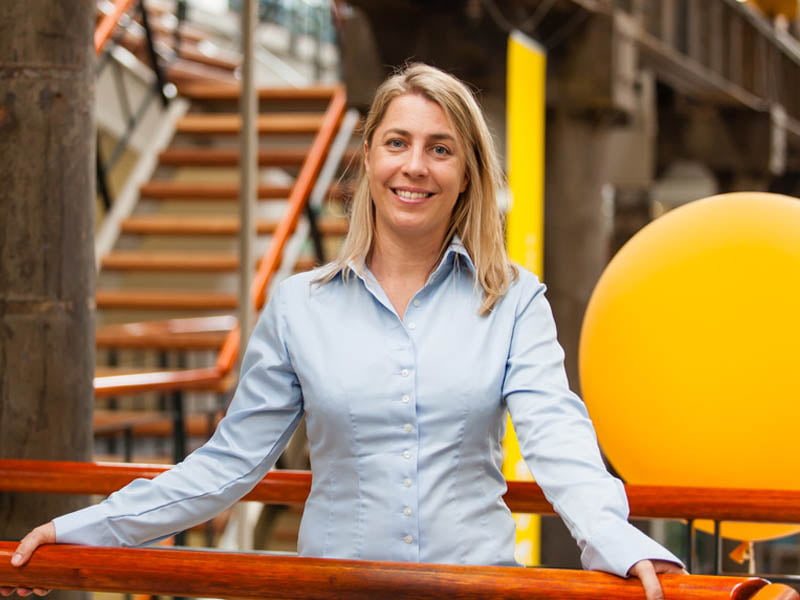Policy-makers trying to light a fuse under deep tech commercialisation in this country could do worse than take a stroll through Cicada Innovations in Sydney and talk to its chief executive Petra Andren.
You might hope that Treasurer Scott Morrison will have taken some cues from the Cicada experience, both the good and the bad.
Cicada Innovation, formerly known as ATP Innovations and based at the Australian Technology Park, is a strangely under-sung asset in the local tech ecosystem, a weirdly structured oddity that has nonetheless attracted global recognition for effectiveness.

The organisation is owned in equal parts by four leading universities – the University of NSW, the Australian National University, the University of Technology, Sydney (UTS), and Sydney University.
It is a straight-forward for-profit business, eschewing the somewhat ridiculous trend toward organisations charged with churning out commercially successful businesses being structured as not-for-profits.
Four Australian universities cooperating as equal shareholders on incubating deep tech startups as a sustainable for-profit business. This is itself a minor miracle in this country and worth marveling at. The fact that it has built a success track record is really something.
Cicada was named ‘Top Incubator in the World’ last month by the International Business Innovation Association (InBIA), which is not nothing. We should surely be taking a closer look and seeking to replicate the Cicada model across the nation.
Finalists for the award were selected from 2,200 InBIA member incubators, accelerators and entrepreneurship centres from all over the world. Cicada Innovations was the only Australian organisation in the running.
Cicada has won this award previously, but Ms Andren says this one is more significant because it is based on the numbers that all the incubators submit to the organisation – like jobs created, products launched, patents filed and investment attracted into its cohort.
The InBIA members are benchmarked on their numbers, and Cicada came out on top.
Ms Andren says in the US co-working spaces and incubators are becoming increasingly irrelevant, because of the rise of the accelerator.
Cicada is now a super-incubator, in that it runs an integrated model where it also runs specialised accelerators that feed into the incubator for longer term support.
Corporate partners provide signalling and heft, while Cicada has the connections to more easily reach deep into the shareholder universities.
“We need to get a bit more strategic about this than just [having government’s invest in office] space. Incubators now are essentially real estate plays and they are essentially cheap rent for startups,” Ms Andren said.
“And if they don’t move the companies out, that to me does not make sense. It becomes just space. To me there has to be significant strategy around who comes in, and when they come out.”
So if Scott Morrison is Santa Claus as the Deputy Prime Minister Michael McCormack has suggested, what does Petra Andra want for Christmas in the Federal Budget?
Well. That’s pretty straight forward. As a deep tech incubator, she wants a higher profile for the entire innovation ecosystem. There is a pay-off there for everyone, across the economy.
That means she wants to Treasurer to talk up the commitment to the sector, and to talk up the urgency.
It’s not necessarily about the dollars, but as much the signalling and priority.
A good way to do that is for a comprehensive and enthusiastic response through the budget to the 30 recommendations contained in the Innovation and Science Australia 2030 strategy.
Mainly though, Ms Andren has two things on her mind: How is the R&D Tax Incentive scheme going to be re-worked, and what’s to be done about the skilled visa issues that is making it so hard for her cohort to access global talent.
Changes have been flagged for the R&D scheme that will produce winners and losers, but it is yet impossible to yet tell what it looks like. This is the part of the budget speech that will be listened to most keenly by the tech and innovation sectors.
Scott Morrison seems to be looking to increase the dollar value of direct grants to research rather than the indirect tax incentives, as well as the introduction of premium tax breaks that reward university collaborations.
And there is talk of putting modest caps on the amount that can be claimed under the R&D scheme. That’s a scenario that won’t be welcomed by the startup sector, and would make like difficult for the capital intensive deep tech startups.
“The R&D Tax rebate is the most important scheme that we have here in Australia,” Ms Andren said.
“It’s unique to Australia and if we start messing with it too much – or signalling that, which causes uncertainty – that’s just bad for the whole deep tech scene. It’s just bad,” she said.
The changes to the temporary skilled migration program – the 457s – that were dropped on the industry without warning last year is probably not something to be reworked in a budget. But it had such a severe impact that Ms Andren is hoping to hear some good news regardless.
About 25 per cent of the people in companies at Cicada were on 457 visas when the changes were made. A large number of them had to leave the country. The others have been massively distracted as they sought ways to stay in the country.
“It’s been a massive, massive blow to us. And it’s still a major problem,” she said.
The biggest single challenge to local deep-tech startups is no longer access to capital – even though that can still be a problem – it is accessing talent, and in particular accessing talent to scale.
If Santa Claus Scott Morrison can pull something out of bag of tricks that addresses the talent issue, he will get a standing ovation.
Do you know more? Contact James Riley via Email.

